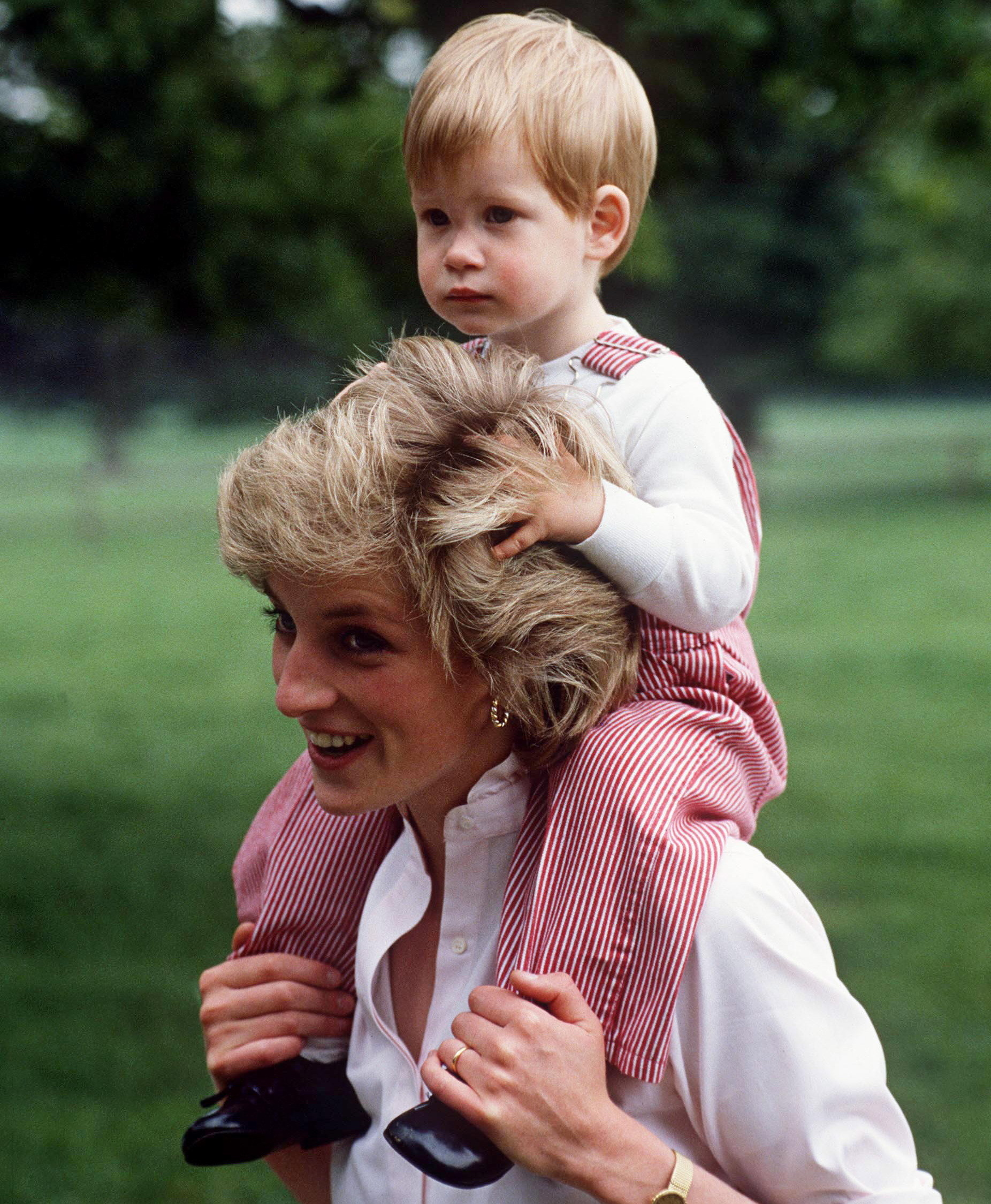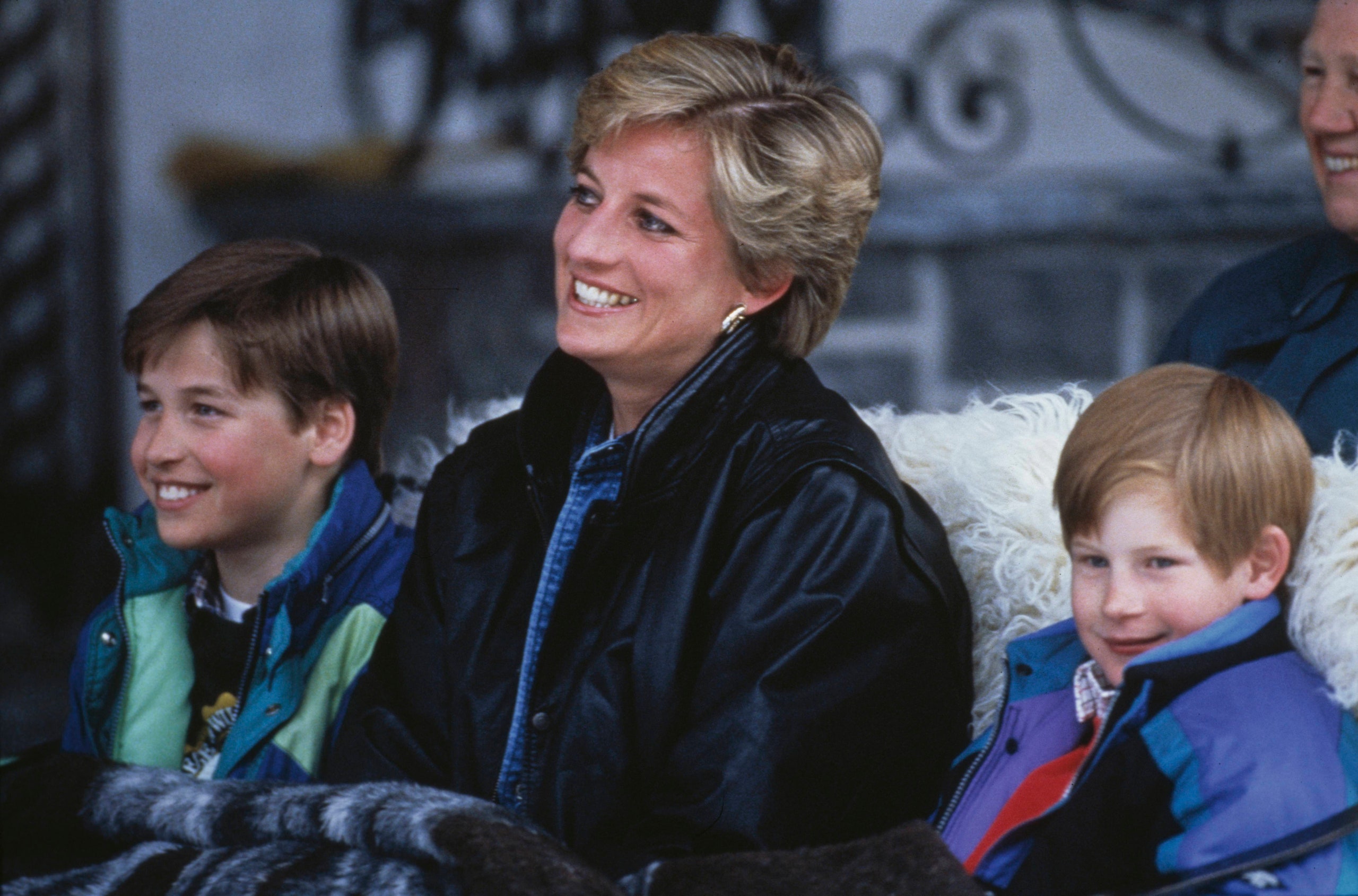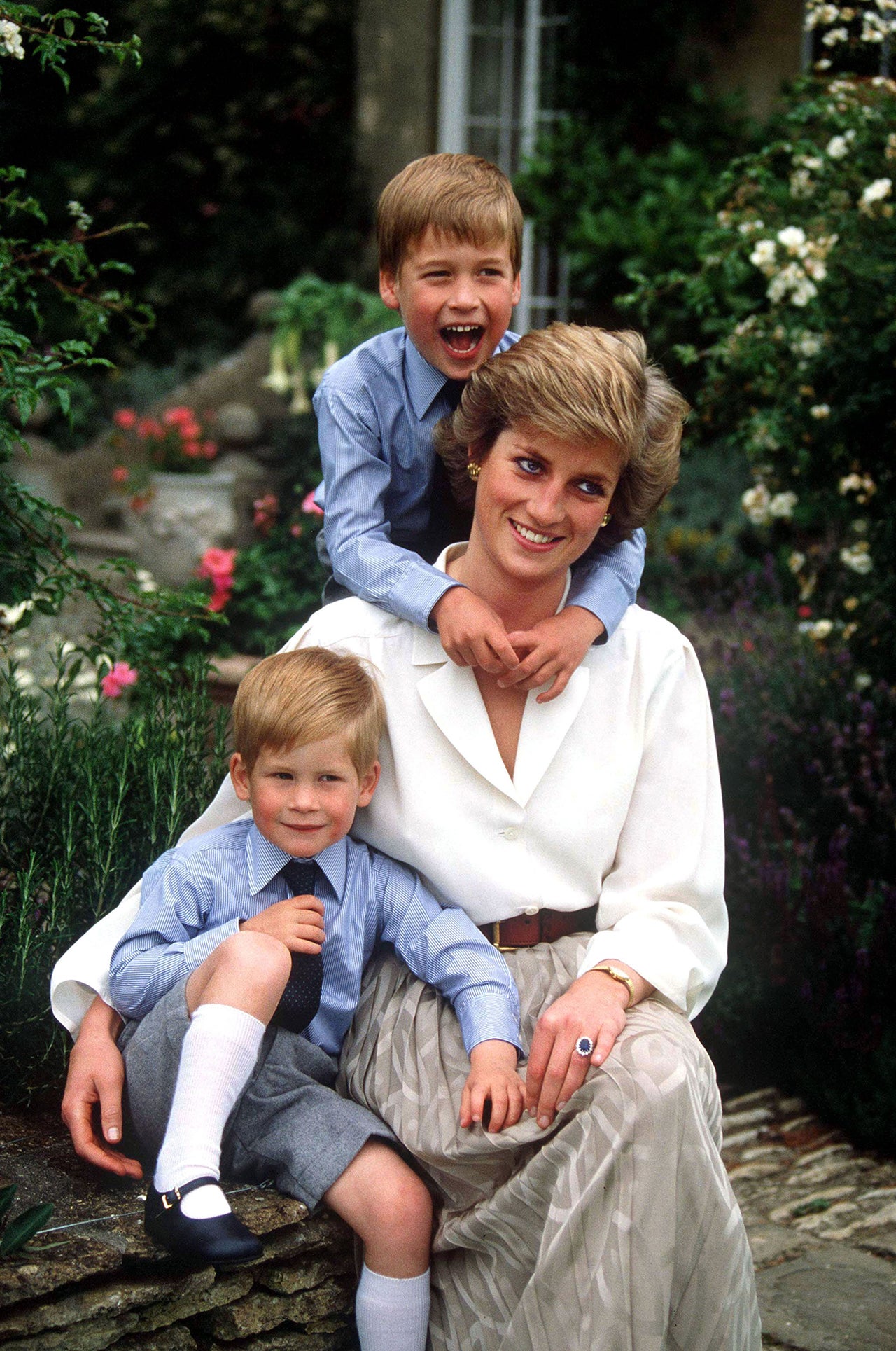Princess Diana, William, And Harry - The Language We Use
It's almost like the words we pick, the phrases we choose, they genuinely shape how we see people, especially those who live in the public eye. When we talk about figures like Princess Diana, and her sons, William and Harry, it's not just about what happened, but rather how the story gets told, how their very identities are, in a way, molded by the language that surrounds them. You know, from the grand titles to the little, everyday words, every bit of language plays a part in building up the picture we hold in our minds.
So, too, it’s fascinating to consider how language, whether formal or quite informal, really builds a picture for us. Think about it: the way a word is spelled, or if it's capitalized, can actually change its whole feeling. This isn't just some academic thing; it truly affects how we feel about someone, how we talk about them, and how their story gets passed along. It's like, the words become a kind of lens through which we view their experiences, their public roles, and even their personal connections.
This exploration, you see, isn't about telling their personal stories, but more about looking at the words themselves, how they are used, and what they might imply when we speak of people who are, quite literally, part of a historical narrative. We're going to consider how some very simple linguistic ideas can really shed light on the broader conversation surrounding Princess Diana and, of course, her children, William and Harry. It’s a little bit about the mechanics of language, applied to very public lives.
Table of Contents
- The Language Around Public Figures
- How Do Titles Shape Our Perception of Princess Diana?
- The "Little Princess" Idea and William and Harry
- What Role Do Everyday Phrases Play?
- "Lil'" and Terms of Affection for William and Harry
- When Narratives Blur - Past and Present
- How Do Public Stories About Princess Diana Evolve?
- The Public's Gaze - Fairness and Expectation
- The Weight of Public Wishes for Princess Diana's Sons
- Style and Substance - The Way We Talk About Them
- Capitalization and the Story of Princess Diana, William, and Harry
The Language Around Public Figures
When we talk about people who are known all over the globe, the words we pick become very important. It’s almost like the words themselves carry a certain weight, a particular history. Think about how a simple name can be given a special prefix, like "lil," which is, you know, a short way of saying "little." This "lil" can be used as a kind of prefix, sometimes even capitalized when it’s part of a name. This shows us how language can shrink something down, make it feel more familiar, or even give it a special kind of endearing quality. It’s a subtle thing, but it truly shapes how we feel about someone, especially someone like Princess Diana, who was seen by so many in so many different ways.
How Do Titles Shape Our Perception of Princess Diana?
Consider, for a moment, the word "milady." It's a term that, as a matter of fact, popped up around 1778, partly from French, and it was a way of speaking about an English noblewoman. This kind of formal address, this title, really sets a person apart. It’s not just a word; it’s a whole piece of history, a way of showing respect or acknowledging a certain position. When we think about how Princess Diana was addressed, or how she was spoken of, these formal titles, like "milady" in its historical sense, they contribute to a certain image, a certain expectation. It’s very different from just calling someone by their first name, you know? The formality, it adds a layer of distance, a sense of importance, which can be quite significant for figures like Princess Diana.
The "Little Princess" Idea and William and Harry
There's this idea, a rather common one, of someone being "a little princess." It’s often used to describe someone who might be, say, dressed up in a special way, or who perhaps wishes they were a princess. This concept, this sort of imagined role, can sometimes be applied to public figures, even when it’s not quite right. It's like the public might project certain wishes or expectations onto them, seeing them as this idealized version. This idea of being a "little princess" could be, in a way, how some people might have initially viewed Princess Diana, or perhaps even how the public hoped she would be. For William and Harry, too, the public often has very specific ideas about their roles, almost as if they are characters in a story where certain expectations are just, you know, part of the script.
- Rihanna Gray Hair Color
- Gray Hair With Lavender Highlights
- Curtain Bangs
- Jake Gyllenhaal And Taylor Swift Age Gap
- Kate Beckinsale Eye Color
What Role Do Everyday Phrases Play?
Beyond the grand titles, everyday words and phrases really do their part in shaping how we talk about public figures. It's interesting how even something as simple as "mister" can be a part of a style, or a complete style, but usually, it's tied to some sort of position. This shows how language ties people to their roles, even in seemingly casual ways. The ordinary "Mr. and Mrs. J.R." shows how common titles are used to categorize people, to give them a place in the social fabric. These seemingly small linguistic choices, they add up, creating a picture of who someone is and what their place is in the world, especially for figures like Princess Diana, William, and Harry, who are constantly defined by their public roles.
"Lil'" and Terms of Affection for William and Harry
That "lil" prefix we talked about, the short form of "little," it’s often used in a way that feels quite personal, almost like a term of endearment. When a word like "lil" is used, especially capitalized as part of a name, it suggests a certain closeness, a way of making someone feel familiar. In the world of public figures, where there's often a lot of distance, these informal touches in language can create a sense of connection. For William and Harry, who have grown up in the public eye, terms of affection, or even just simplified versions of their names, can change the tone of how people talk about them, making them feel, you know, a little more approachable. It’s like, even in formal settings, there’s often a desire for a more human touch in the language used.
When Narratives Blur - Past and Present
Sometimes, the way stories are told can make it seem like things that happened long ago are still happening now. This is a bit like what happens with "historical present tense," where a story from the past is told as if it’s unfolding in this very moment. It’s a way of keeping the past alive, keeping it relevant. For someone like Princess Diana, whose story continues to capture attention, this blurring of past and present is very much at play. Her story, her presence, it feels, you know, still very much in the present for many people, even though time has passed. This way of telling stories, it keeps her, and by extension, William and Harry, in a continuous public conversation, almost as if their past actions are still shaping today.
How Do Public Stories About Princess Diana Evolve?
Think about how a story like "Chicken Little" gets passed around. It’s a tale that, as a matter of fact, shows up in various forms, sometimes in, say, a gazette, an occurrence of everyday life. This idea of a story, a narrative, appearing in different places and evolving over time, it’s quite similar to how public stories about figures like Princess Diana develop. Her story isn't just one fixed thing; it’s been told and retold, interpreted in different ways, sometimes with a sense of public alarm, sometimes with quiet reflection. This continuous retelling, it shapes how new generations come to understand Princess Diana, and how her legacy continues to influence perceptions of William and Harry. It’s like, the story keeps finding new forms, new places to be heard.
The Public's Gaze - Fairness and Expectation
It’s interesting to consider how people often talk about what's fair, yet sometimes they might act in ways that seem, you know, a bit contradictory. There's this idea that people can say one thing, like claiming certain actions aren't fair, but then they might still engage in similar behaviors if it suits them. This kind of public hypocrisy, this gap between what's said and what's done, can also be reflected in how public figures are viewed. The public often holds very strong opinions about what is right or wrong for someone like Princess Diana, or for William and Harry, yet the very people expressing these views might not always apply the same standards to themselves. It’s a complex dynamic, really, how public judgment works, and how expectations are placed upon those in the spotlight.
The Weight of Public Wishes for Princess Diana's Sons
The idea that someone "wishes she were a little princess," or that "he wishes I were his wife," even if it’s not true, points to how much people project their own desires onto others. These wishes, these imagined roles, they can become a kind of burden, or at least a set of expectations, for public figures. For William and Harry, there have always been public wishes, hopes, and expectations about who they should be, how they should act, and what their lives should look like. It’s like, the public has a script for them, and these wishes, they can sometimes feel like orders, even if they aren’t spoken directly. This public wishing, it's a powerful force, shaping the narrative around Princess Diana’s sons in ways that are, you know, quite profound.
Style and Substance - The Way We Talk About Them
The way we choose to write and speak, it’s a matter of style, really. Things like capitalization, for example, can vary a lot depending on who's publishing something. But even so, these style choices, they tell us something about the tone, about the relationship between the writer and the subject. When we talk about figures like Princess Diana, William, and Harry, the stylistic choices in media, in books, in everyday conversation, they all contribute to the overall picture. It’s not just about the facts; it’s about how those facts are presented, how the language is dressed up, so to speak. This is especially true for public figures, where every word can be, you know, analyzed and interpreted in so many different ways.
Capitalization and the Story of Princess Diana, William, and Harry
Capitalization is, in essence, a style issue. It’s about how we present names and titles, like "Vice Admiral Sir T. J. H. Laurence" or "HRH Princess Anne, The Princess Royal." When a title is used with a name, we know to capitalize it. This formality, this adherence to certain rules of presentation, it reflects a kind of respect, a recognition of status. But then, you have the ordinary "Mr. & Mrs. J. R.," which shows how common usage can exist alongside these formal rules. For the story of Princess Diana, William, and Harry, the choices around capitalization, around how their names and titles are presented, they are part of the larger narrative, a subtle way of signaling their position and their story. It’s like, the very act of writing their names, it carries meaning, a kind of unspoken understanding of their place in the public eye.
Article Recommendations
- How Often Do Girls Get Horny
- Bachelor In Paradise Next Season
- Hot Towel Treatment
- Quincecoupon Code
- Hairstyles For Every Face Shape



Detail Author:
- Name : Darby Halvorson Jr.
- Username : lemuel36
- Email : oreichert@yahoo.com
- Birthdate : 1996-08-08
- Address : 712 Imelda Coves Suite 052 Lake Loren, MN 39237-5878
- Phone : 256.863.2788
- Company : Collier, Hane and Waelchi
- Job : Precision Aircraft Systems Assemblers
- Bio : Aut modi vel error quo quas impedit animi. Quibusdam tenetur pariatur corporis. Nesciunt vitae repellendus possimus dolor dicta est veniam. Vel voluptas quidem dolore consectetur minima cumque.
Socials
twitter:
- url : https://twitter.com/kaitlin.green
- username : kaitlin.green
- bio : Voluptatem quidem qui et sint ad ut architecto et. In neque id officiis hic et. Quas a dignissimos sapiente eos deserunt sunt eveniet.
- followers : 3193
- following : 1798
facebook:
- url : https://facebook.com/kaitlin723
- username : kaitlin723
- bio : Assumenda nam voluptatem ipsum temporibus qui totam.
- followers : 3706
- following : 2996
instagram:
- url : https://instagram.com/green2019
- username : green2019
- bio : Et ex eos ab. Est quos mollitia ut molestiae numquam. Impedit excepturi quia accusantium et aut.
- followers : 2966
- following : 2341
tiktok:
- url : https://tiktok.com/@kaitlin_green
- username : kaitlin_green
- bio : Eligendi iusto sint deserunt consequuntur occaecati.
- followers : 6570
- following : 1319